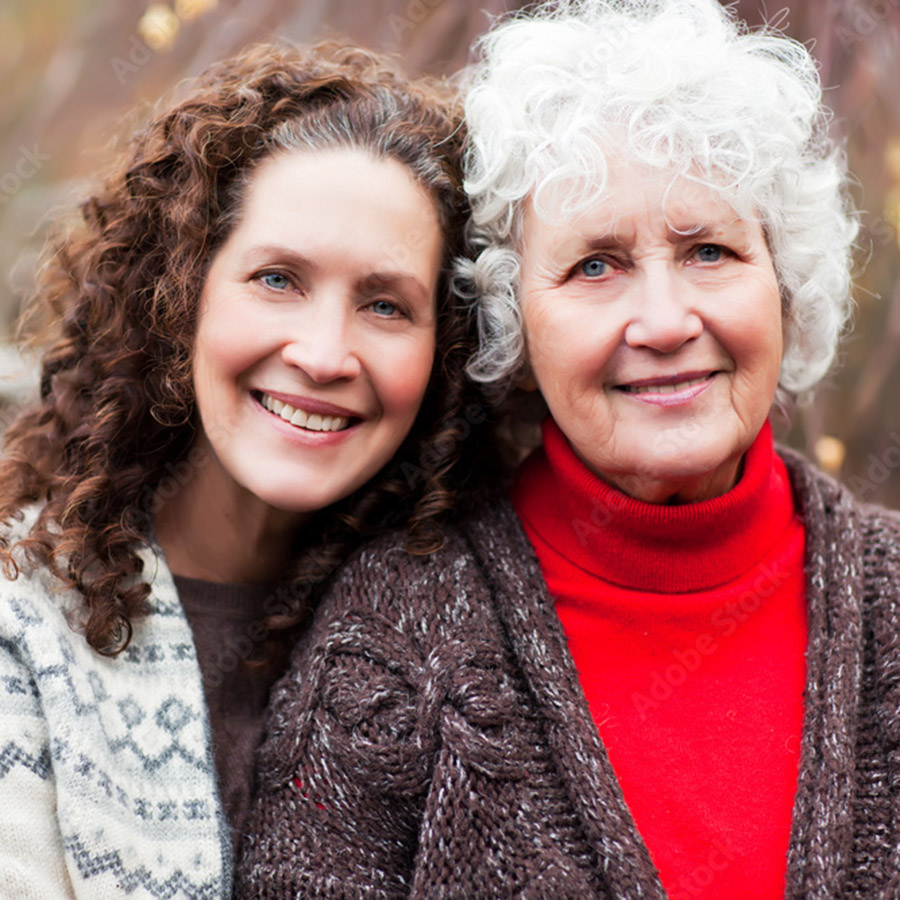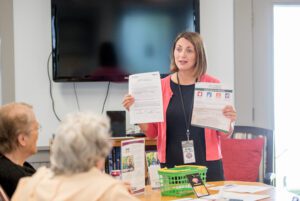What is National Caregivers Month?
November is National Caregivers Month where Age Well joins statewide and national organizations to celebrate and support caregivers. In 1994, the Caregiver Action Network (the National Family Caregivers Association) began promoting national recognition of family caregivers.
In this spirit, President Biden released this Proclamation on October 31st, 2023, in recognition of National Family Caregiver Month:
“How we treat our children, parents, and loved ones and how we value those who care for them are fundamental to who we are as a Nation. Early care and education give young children a strong start in life while long-term care helps older Americans, veterans, and people with disabilities live and work with dignity. During National Family Caregivers Month, we honor the Americans who lift up our communities and our Nation by providing dignified, professional, and invaluable care to the people we cherish the most.”
“[W]e recognize the love and sacrifice of millions of American caregivers. They are the backbone of our country, caring for young children, aging parents, disabled veterans, injured service members, and others who need support and medical assistance. Let us celebrate and honor our caregivers and renew our efforts to protect their dignity, health, and security. Because when we care for our caregivers, we honor our American ideals and move closer to a future where no one in this Nation is left behind.”
Read President Biden’s Full Proclamation.
Thank you First Lady Rosalyn Carter
When the news came of former First Lady Rosalyn Carter’s recent death at age 96 on November 19th, 2023, our thoughts turned not only to thankfulness for her long life of public service, but also to her enduring commitment to supporting and recognizing the 53 million unpaid family caregivers in the United States. In 1987, Mrs. Carter founded the Rosalyn Carter Institute for Caregivers (RCI) “to support the unique needs of caregivers, those who selflessly cared for family and friends; and to build on her belief that everyone is a caregiver now, has been a caregiver, or will either be or need a caregiver in the future.”[1] How fitting that November is not only a time of giving thanks, but also National Family Caregiver Month.
According to the RCI, “[al]though caregiving will likely affect all of us at some point in our lives, many caregivers do not identify as a caregiver. Too often we hear caregivers describe themselves as ‘just’ a daughter, husband, friend, or neighbor. If you provide support such as errands and grocery shopping, wound care and prescription management, or cooking, cleaning, and personal care at home – you are a caregiver, and you deserve to be seen and supported.” [1] https://rosalynncarter.org/
Why is National Caregiver Month important?
As the Caregiver Action Network states, by recognizing and celebrating those who care for others, we are:
- Educating family caregivers about self-identification
- Raising awareness of family caregiver issues
- Increasing support for family caregivers
- Celebrating the efforts of family caregivers
What are signs of Caregiver Stress and Burnout?
It is very important to stay alert to signs of caregiver stress, and to take them seriously if you experience them. Trying to “power through” can lead to burnout.
Signs of caregiver stress
- Feeling burdened or worrying all the time
- Feeling tired often
- Sleeping too much or not enough
- Gaining or losing weight
- Becoming easily irked or angry
- Losing interest in activities you used to enjoy
- Feeling sad
- Having frequent headaches or other pains or health problems
- Misusing alcohol or drugs, including prescription medicines
- Missing your own medical appointments
- Read more about caregiver stress from the Mayo Clinic


Tips for Caregivers – Taking Care of Those Who Take Care of Others
Caregiving can be a fulfilling journey, but it can also be challenging – resulting in significant mental, physical, and financial strain on the caregiver. Many caregivers also report feeling isolated and alone in their role. Caregiving for a loved one is a long-term situation that changes constantly. Think of it as a marathon during changeable weather, not a sprint! To best serve the needs of the person requiring care, caregivers should plan early for ways to keep themselves healthy, rested, emotionally and mentally well, and socially connected. Self-care strategies are not “selfish”, they are essential survival skills!
Self-care works best on a regular basis and can be anything that works for the individual. It does not have to be a tropical vacation or a day at the spa—simple activities like going for a walk, learning a deep breathing exercise, or scheduling a phone call or video chat with a friend can have a big impact if done regularly. Seeking out and taking advantage of opportunities for reliable, affordable respite care is a necessity for family caregivers, giving them opportunities to step out of their role to recharge, cultivate hobbies and outside relationships, and tend to their own health needs.
Helpful tips for Caregivers
- Plan ahead
- Take one day at a time
- Accept help
- Get enough rest and nutrition
- Be kind to yourself
- Learn about available resources
- Develop contingency plans
- Make YOUR health a priority
- Make time for leisure, rest, and relaxation
- Share your feelings with others
Resources for Caregivers – How Age Well Can Help You
Caregivers can get assistance navigating social service programs as well as finding paid respite providers through the Helpline and Caregiver Support team. The Caregiver Support team works with caregivers to improve their understanding about chronic progressive diseases such as dementia (like Alzheimers’ disease) and Parkinson’s and to access support groups and licensed mental health counseling.
Age Well offers Powerful Tools for Caregivers courses, delivered throughout the year, to support caregivers in developing skills, confidence and resilience. The Caregiver Support team can also help caregivers build support networks, including through our Respite Volunteer program, which connects trained respite volunteers with families caring for a person living with dementia. Additional respite support is available through the Dementia Respite Grant program, which provides funding for eligible caregivers to defray the cost of paid respite care delivered either by friends, family members or outside caregivers.
Call the Helpline to learn more: 1-800-642-5119.

